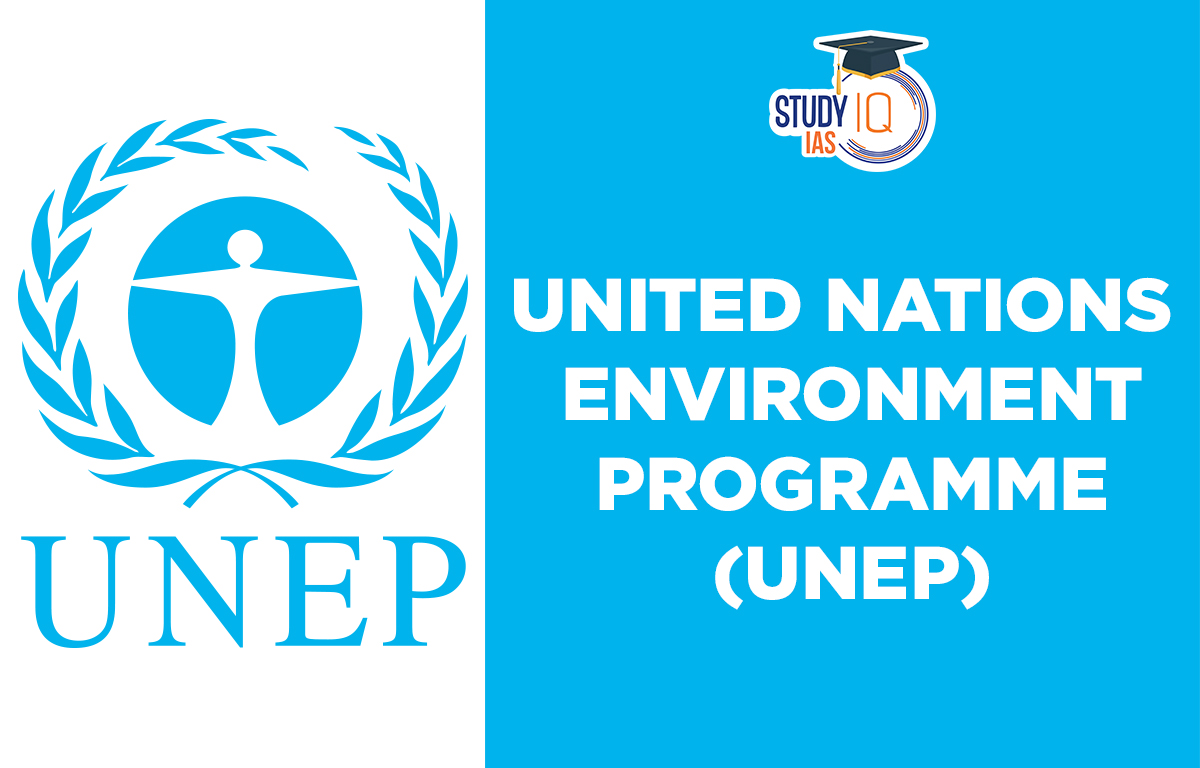Table of Contents
United Nations Environment Programme (UNEP)
The United Nations Environment Programme (UNEP) is the world’s leading environmental authority, establishing the global environmental agenda, promoting the consistent implementation of the environmental dimension of sustainable development throughout the United Nations countries and acting as an authoritative advocate for the global environment. The United Nations Environment Programme (UNEP) was founded on June 5, 1972, to coincide with World Environment Day and is headquartered in Nairobi, Kenya.
The United Nations Environment Programme (UNEP) is an important topic for the UPSC exam, particularly in the General Studies Paper III, which covers topics related to Environment, Biodiversity, and Climate Change. This article aims to provide a comprehensive overview of UNEP, its mandate, areas of work, funding sources, major achievements, and role in international environmental governance.
United Nations Environment Programme Objectives
UNEP’s main goal is to provide leadership and encourage partnership in environmental care by inspiring, informing, and enabling nations and peoples to improve their quality of life without compromising future generations.
UNEP Key Areas of Work
The key areas of work of UNEP include:
- Climate change
- Biodiversity and ecosystems
- Chemicals and waste
- Resource efficiency
- Environment and security
- Environmental governance
UNEP Major Achievements
Some of the major achievements of UNEP include:
- Establishment of the Intergovernmental Panel on Climate Change (IPCC) in 1988
- Creation of the Montreal Protocol on Substances that Deplete the Ozone Layer in 1987
- Establishment of the Global Environment Facility (GEF) in 1991
- Launch of the Green Economy Initiative in 2008.
- Establishment of the UN Environment Assembly (UNEA) in 2012
UNEP Funding
The UNEP is supported by voluntary contributions from governments, intergovernmental organisations, UN agencies, and the private sector. The United Nations General Assembly reviews and approves UNEP’s budget, and its financial management is overseen by the United Nations Board of Auditors.
UNEP Mandate
The mandate of UNEP stems from its founding resolution, which calls for the organisation to provide a comprehensive framework for cooperation among nations and international organisations on environmental issues, as well as the adoption of common strategies and policies to protect and improve the human environment. Through subsequent resolutions of the United Nations General Assembly and other intergovernmental bodies, the mandate of UNEP has been reaffirmed and expanded.
Climate change, biodiversity and ecosystems, chemicals and waste, resource efficiency, and environment and security are the five thematic priorities that UNEP works on. These thematic areas reflect the world’s major environmental challenges today, as well as the need for integrated and holistic approaches to addressing them.
Climate change is one of the most serious environmental issues confronting the world today. UNEP works to promote global action on climate change by providing scientific and technical advice, assisting in the development and implementation of national climate change policies and strategies, and facilitating international climate change negotiations and cooperation.
Biodiversity and ecosystems are essential to human well-being and the long-term development of societies worldwide. Through the development and implementation of national and international policies and strategies, support for the establishment and management of protected areas, and promotion of sustainable livelihoods and economic development, UNEP works to promote the conservation and sustainable use of biodiversity and ecosystems.
Chemicals and waste pose serious risks to human health and the environment, especially in developing countries. UNEP works to promote responsible chemical and waste management through the development and implementation of international treaties and agreements, support for the establishment of national and regional chemical and waste management mechanisms, and the provision of technical assistance and capacity building to developing countries.
Resource efficiency is critical for long-term development and reducing the environmental impacts of resource use. UNEP promotes resource efficiency by developing and implementing policies and strategies for sustainable consumption and production, assisting in the implementation of sustainable procurement practices, and promoting sustainable business practices and green technologies.
The relationship between environmental degradation, conflict, and insecurity is recognised in the emerging field of environment and security. UNEP promotes environmental cooperation as a means of fostering trust and preventing conflict, as well as support for the incorporation of environmental considerations into peacebuilding and conflict prevention activities, as well as the provision of technical assistance and capacity building to countries experiencing environmental insecurity.
UNEP and India
India is a key member of UNEP, and the country has been actively involved in UNEP’s environmental work. India has taken part in a number of UNEP initiatives, such as the International Resource Panel, the Global Environment Outlook, and the Partnership for Clean Fuels and Vehicles. India has also contributed to UNEP’s biodiversity and ecosystem management work, particularly through its participation in the Convention on Biological Diversity.
In recent years, India has made significant progress in addressing environmental challenges, particularly in the areas of renewable energy and air pollution. India has set ambitious targets for renewable energy development, including 175 GW of renewable energy capacity by 2022.
In addition, India has launched several initiatives to combat air pollution, such as the National Clean Air Programme and the Pradhan Mantri Ujjwala Yojana, which aims to provide clean cooking fuel to rural households.
Through various initiatives, including the Global Environment Facility, which provides funding for environmental projects in developing countries, UNEP has supported India’s efforts to address environmental challenges. UNEP has also provided India with technical assistance and capacity building in areas such as sustainable urbanisation, sustainable consumption and production, and biodiversity and ecosystem conservation.
The promotion of sustainable consumption and production is one area where UNEP and India have collaborated closely. The National Mission for Sustainable Agriculture and the National Clean Energy Fund are two initiatives launched by India to promote sustainable consumption and production. The United Nations Environment Programme (UNEP) has aided India’s efforts through initiatives such as the 10-Year Framework of Programmes on Sustainable Consumption and Production, which aims to promote sustainable consumption and production patterns globally.
Another area where UNEP and India collaborate is in the promotion of green technologies and innovation. The National Clean Energy Fund and the Smart Cities Mission are two initiatives launched by India to promote the development and deployment of green technologies. The United Nations Environment Programme (UNEP) has aided India’s efforts through initiatives such as the Global Cleantech Innovation Programme for SMEs, which aims to promote the development and commercialization of clean technologies.
Finally, India’s participation in UNEP demonstrates the country’s commitment to addressing environmental challenges and promoting sustainable development.
UNEP’s work in India has helped the country promote renewable energy, combat air pollution, promote sustainable consumption and production, and develop green technologies and innovation. The partnership between UNEP and India will continue to be an important factor in addressing the world’s environmental challenges.
UNEP Role in International Environmental Governance
UNEP plays an important role in international environmental governance by providing scientific and technical advice, facilitating the negotiation and implementation of multilateral environmental agreements, and assisting countries in developing their capacity to address environmental challenges.
UNEP UPSC
UNEP has had numerous significant successes in its nearly 50-year history. The establishment of the Intergovernmental Panel on Climate Change (IPCC) in 1988 was one of the most significant achievements, as it has played an important role in advancing scientific understanding of climate change and informing global policy discussions on the subject.
UNEP is an important organization that plays a crucial role in addressing global environmental challenges. Aspirants for UPSC exams should have a good understanding of UNEP’s mandate, key areas of work, major achievements, funding sources, and role in international environmental governance.


 Goods and Services Tax (GST), Objectives...
Goods and Services Tax (GST), Objectives...
 World Oceans Day 2025, History, Theme, S...
World Oceans Day 2025, History, Theme, S...
 World Environment Day 2025, Theme, Histo...
World Environment Day 2025, Theme, Histo...





















